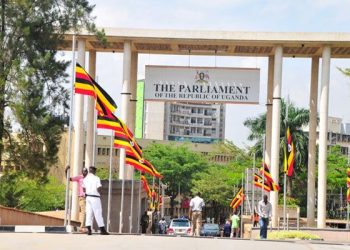The 10th Parliament’s schedule in terms of Bills, yet to be processed and passed, is congested with some pieces of legislation dating as far back as the tail end of the 8th Parliament. With all these Bills that are gathering dust on the shelves of the First Parliamentary Counsel, Deputy Speaker of Parliament Jacob Oulanyah wants the Executive to separate the wheat from the chaff, by dropping those it deems irrelevant.
“The Prime Minister should indicate to Parliament which Bills the Government is no longer interested in or those that have become irrelevant,” Oulanyah said, on Thursday. Oulanyah’s plea seems to be an attempt for Parliament to clean its slate, following concerns that its committees are no longer conforming to its rules of procedure, that require them to process Bills within 45 days and present reports to the House. Parliament’s rules of procedure provide that if a committee is unable to process the Bill referred to it after the first reading within 45 days, then its chairperson writes to the Speaker, requesting for anextension of time. However, many committee chairpersons have not bothered to write to the Speaker, to seek such extensions.
Speaker of Parliament Rebecca Kadaga recently told the House that some Bills have been before committees for more than a year. Committees are obliged to hold public hearings with stakeholders and interested members of the public that will be affected by the legislation. Oulanyah told the lawmakers that the committees’ laid-back approach in processing Bills reflected badly on
“the competence and integrity of the entire Parliament”.
Although the reports by committees inform debate on the Bill at its second reading, Parliament’s rules of procedure do not bar Parliament from proceeding and pass a Bill without such reports. “Going forward, if committees fail to produce a report within 45 days, the House shall go ahead to passing the Bill,” Oulanyah said, after directing the Clerk to Parliament, Jane Kibirige, to check the timeline of all pending Bills.
Pending bills.
One of the Bills pending before Parliament is the controversial Marriage and Divorce Bill that has been tabled, withdrawn, shelved and retabled a couple of times.
First tabled as the Domestic Relations Bill, in 2003, the draft was rejected by the Muslim community opposed to the provisions banning polygamy. After being rejected by Parliament in 2016, the Bill was split into a Muslim Personal Law Bill, which covers Muslim marriages, and the Marriage and Divorce Bill for the other religious denominations. The drafts were, however, shelved, following widespread condemnation from a section of religious leaders and members of the public, arguing that key provisions were alien to African culture and Christian teaching.
Some of the controversial proposals include among others, those that pertain to bride price, a customary practice requiring payment of consideration by a groom to his wife’s family. The current Marriage and Divorce Bill states that bride price cannot be treated as a prerequisite for marriage, and makes criminal the act of demanding repayment of bride price.
The Supreme Court has since ruled on the issue of Bride Price in the MIFUMI case by concurring with the provision in the Bill.
Sexual offenses Bill
A Private Member’s Bill by Monicah Amoding (Kumi District), the chairperson of Uganda Women Parliamentary Association. The Bill was tabled in 2016. The Bill seeks to consolidate all laws related to sexual offences and also spells out clear sanctions against sex offenders. Other Bills include the minimum wage Bill, which seeks to draw a line under exploitation of employees and the Judiciary Administration Bill tailored to operationalise articles in the Constitution that deal with the Judiciary as an independent arm of Government.
































































